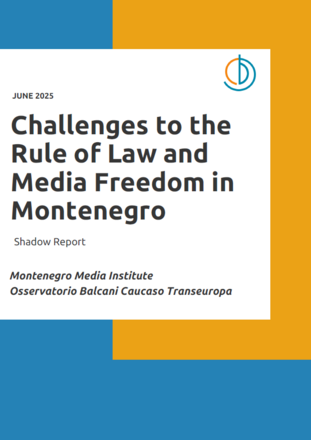
Despite legal reforms in 2024 aimed at aligning Montenegro with EU standards, serious concerns remain regarding media freedom. The reappointment of Boris Raonić as director of the public broadcaster RTCG, despite multiple court rulings against him, illustrates political interference and institutional weakness. Changes in legislation appear to have been tailored to accommodate his appointment.
The media regulator, though formally strengthened, is undermined by political delays in appointing its Council. Proposed legislative changes further risk reducing its independence. Media ownership remains highly concentrated, with major influence from Serbian entities. This foreign presence contributes to editorial bias and disinformation, particularly during elections.
Journalists face frequent threats and poor working conditions. Although defamation is no longer criminalized, SLAPP lawsuits and legal harassment remain common, with no legal framework to prevent them. Judicial responses to violence or threats against journalists are often inadequate.
While Montenegro has received positive feedback from the EU, this report warns that without proper enforcement and safeguards, progress could be reversed. Key recommendations include protecting media independence, ensuring fair regulation, tackling disinformation, and addressing foreign influence.
Tags: Montenegro media freedom Rule of LawThe content of this article can be used according to the terms of Creative Commons: Attribution-NonCommercial 4.0 International (CC BY-NC 4.0) . To do so use the the wording "this article was originally published on the Resource Centre on Media Freedom in Europe" including a direct active link to the original article page.

